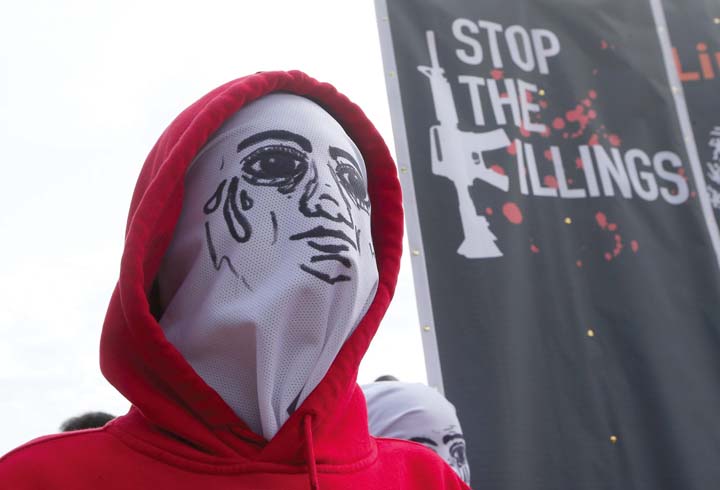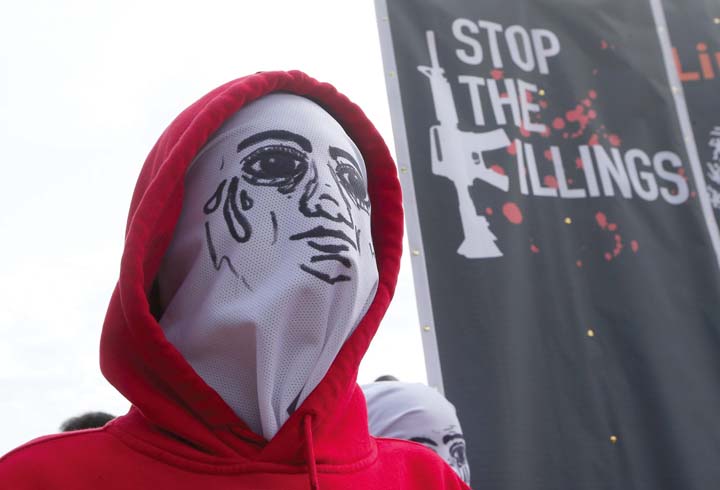
THE Free Legal Assistance Group (FLAG) has asked the International Criminal Court (ICC) to reconsider its decision to suspend its investigation into the killings related to the ongoing anti-illegal drug war of the Duterte administration.
In a five-page letter signed by FLAG chairman and senatorial aspirant Jose Manuel “Chel” Diokno addressed to ICC Prosecutor Karim Ahmad Khan, the group questioned the ICC’s decision to temporarily halt its probe based on the representation made by the Philippine Ambassador to the Netherlands that cited the Department of Justice’s thorough investigation into the 52 killings, which took place from 2016 until 2020 in relation to the anti-drug war.
The FLAG insisted that it was misleading to label as “investigation” the action conducted by the DOJ on the 52 cases and that the number covers only a small fraction of the killings or attempted killings within the scope of the ICC investigation.
Of the 52 cases allegedly investigated by the DOJ, the FLAG said, only 36 occurred within July 1, 2016 and March 16, 2019, the period covered by the ICC investigation.
The figure is only 0.12 percent to 0.3 percent of the 12,000 to 30,000 persons killed during the period.
The FLAG further told the ICC that not a single killing that occurred between November 1, 2011 and June 30, 2016 in Davao was included among the 52 cases allegedly investigated.
“While FLAG is aware that the DOJ has reportedly reviewed some 300 cases, the parameters, scope and results of such review have been withheld from the public,” the group stressed.
“In FLAG’s view, it is misleading to label the DOJ action as an ‘investigation’ since it appears that the DOJ merely conducted a review of the documents provided by the Internal Affairs Service of the Philippine National Police [PNP-IAS],” it added.
The FLAG noted that that the DOJ did not confirm the documents, and merely relied on them; did not identify others who were responsible for the killings, including officials in the chain of command who were complicit in the deaths; did not identify the failure of police authorities to take reasonable measures that could have prevented the killings; and did not identify policies and systemic failures that may have contributed to the killings.
“These are the minimum standards for investigating potentially unlawful deaths, which also apply to any investigation conducted by the DOJ, contained in the Minnesota Protocol on the Investigations of Potentially Unlawful Deaths [2016, The Revised United Nations Manual on the Effective Prevention and Investigation of Extra-Legal, Arbitrary and Summary Executions],” FLAG said.
Furthermore, the human rights group also pointed out that the DOJ’s “investigations” also did not comment on the penalties meted by the PNP-IAS against its police officers.
Out of the 36 cases covered by the ICC investigation, only four cases resulted in the dismissal from service of the erring police officers.
Majority of the cases resulted only in suspension of the officers, ranging from 22 days to 180 days. One case only led to reprimand and another case was dismissed.
“The imposition of IAS/PNP penalties—and the DOJ silence on the penalties imposed by the IAS/PNP —reveals how the Philippine government views the killings,” FLAG said.
FLAG also said the DOJ also did not interview witnesses or survivors or family members of the alleged suspect-victims in the anti-illegal drugs operations.
It has not yet referred a case for prosecution and instead referred the matter to the National Bureau of Investigation (NBI) for further investigation and case build up for the possible filing of criminal charges against erring police officers.
It noted that the DOJ did not give instructions, parameters and a deadline to the NBI.
“The DOJ ‘investigations’ also contravenes Philippine laws which require the PNP and the DOJ to immediately cause the prosecution of erring police officers whenever a police officer invokes official duties as an excuse to kill a suspected criminal,” it said.
Justice Secretary Menardo Guevarra reiterated his call on Monday for the families of persons believed to be killed by law enforcers during anti-illegal drug operations to go directly to the DOJ and file their complaints or for any related assistance that they would need.

